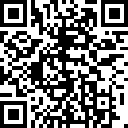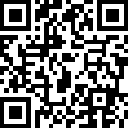Ultima Markets
You are visiting the website that is operated by Ultima Markets Ltd, a licensed investment firm by the Financial Services Commission “FSC” of Mauritius, under license number GB 23201593. Please be advised that Ultima Markets Ltd does not have legal entities in the European Union.
If you wish to open an account in an EU investment firm and protected by EU laws, you will be redirected to Ultima Markets Cyprus Ltd (the “CIF”), a Cyprus investment firm duly licensed and regulated by the Cyprus Securities and Exchange Commission with license number 426/23.

3 Basic Concepts in Forex Trading Key to Beginners
Forex trading can be complex for beginner investors if they don’t understand some basic concepts or elements. Except for margin and leverage mentioned in our previous article, “Understanding Margin and Leverage: Why Forex Trading May Boost Your Profits”, we are going to walk through another 3 basic elements key to forex trading in this article.
Pips & Spread
Pips are a way to measure the price movement of currency pairs in the forex market, while spread refers to the difference between the buying price and selling price of a currency pair.
Think of pips as the small units that represent changes in the value of a currency pair. Pips are usually displayed as the last decimal place in the exchange rate. For example, if the exchange rate of the EUR/USD currency pair moves from 1.2000 to 1.2010, it means it has moved 10 pips.
As for the spread, it’s the cost you pay to enter a trade. When you see a currency pair quote, it will show two prices: the higher ask or offer price and the lower bid price. The difference between these two prices is the spread.
Imagine you want to trade the USD/JPY currency pair, and the current quote is 110.50/110.55. In this case:
- The bid price is 110.50, which means if you want to sell the currency pair, you will receive 110.50 Japanese yen for every US dollar.
- The ask price is 110.55, which means if you want to buy the currency pair, you will have to pay 110.55 Japanese yen for every US dollar.
In this example, the spread is 5 pips, as the difference between the bid price (110.50) and the ask or offer price (110.55) is 5 pips.
Take Profit
Take profit and stop loss are two important tools used in forex trading to manage risk and protect trading positions. Let’s explain take profit first.
Take profit is a predetermined level at which you decide to close a trade and secure your profits. It’s like setting a target for your amount of profit you want to achieve from a trade. When the market reaches your specified take profit level, your trade is automatically closed to realize the profit.
Imagine you bought the EUR/USD currency pair at 1.2010, and you set your take profit at 1.2110. This means you aim to capture a profit of 100 pips. If the market moves up and reaches 1.2110, your trade will be closed automatically, limiting your profit to 100 pips.
Stop Loss
Stop loss is a predetermined level at which you decide to exit a trade to limit your potential losses. It’s like a bottom-line that protects your trades from significant drawdowns. When the market moves against your position and reaches your specified stop loss level, your trade is automatically closed to prevent further losses.
Continuing from the previous example, let’s say you also set a stop loss at 1.2050. This means you are willing to accept a maximum loss of 50 pips. If the market moves down and reaches 1.2050, your trade will be closed automatically, limiting your loss to 50 pips.
By using take profit and stop loss orders, you can manage your risks effectively, protect your investment, and maintain a consistent and disciplined approach to forex trading.
Summary
- Pips are a way to measure the price movement of currency pairs in the forex market, while spread refers to the difference between the buying price and selling price of a currency pair.
- Take profit is a predetermined level at which you decide to close a trade and secure your profits, resembling a target for your amount of profit you want to achieve from a trade.
- Stop loss is a predetermined level at which you decide to exit a trade to limit your potential losses, resembling a bottom-line that protects your trades from significant drawdowns.
Why Trade Metals & Commodities with Ultima Markets?
Ultima Markets provides the foremost competitive cost and exchange environment for prevalent commodities worldwide.
Start TradingMonitoring the market on the go
Markets are susceptible to changes in supply and demand
Attractive to investors only interested in price speculation
Deep and diverse liquidity with no hidden fees
No dealing desk and no requotes
Fast execution via Equinix NY4 server














